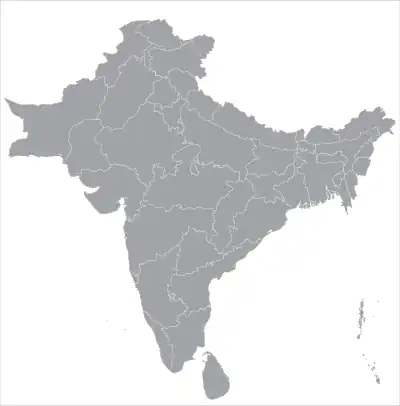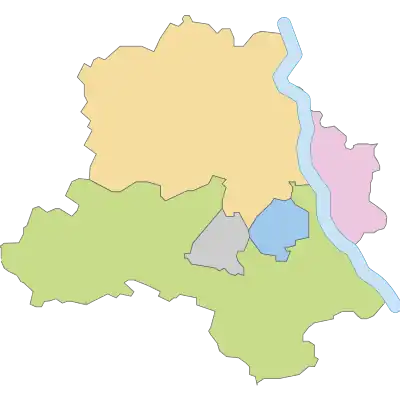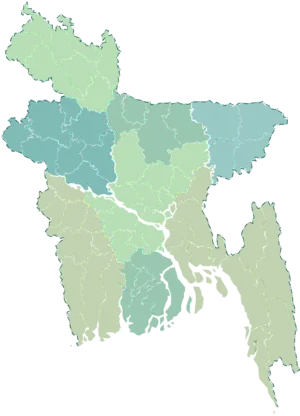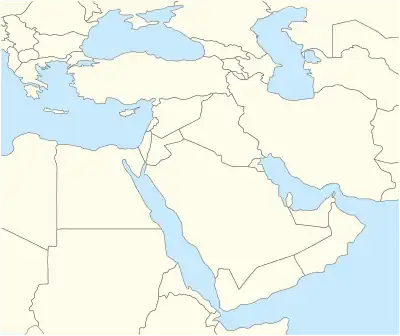بنگال
Persian
Alternative forms
- بَنْگَالَه (bangâle) (archaic)
Etymology
Borrowed from Middle Bengali বাঙ্গালা (baṅgala), said to be named after the Vanga Kingdom, of uncertain ultimate origin. Suggestions include a connection to Sanskrit वङ्ग (vaṅga, “tin”), a borrowing from the Dravidian tribe *Bong with the suffix അളം (aḷaṁ, “place”), or from Tibetan བནས (bans, “marshy place”).[1][2] More at Bengal.
Pronunciation
- (Classical Persian) IPA(key): [baŋ.ˈɡɑːl]
- (Dari, formal) IPA(key): [bäŋ.ɡɑ́ːl]
- (Kabuli) IPA(key): [bäŋ.ɡɑ́ːl]
- (Hazaragi) IPA(key): [bäŋ.ɡɔ́ːl̥]
- (Iran, formal) IPA(key): [bæŋ.ɡɒ́ːl̥], [beŋ.ɡɒ́ːl̥]
- (Tajik, formal) IPA(key): [bäŋ.ɡɔ́l]
| Readings | |
|---|---|
| Classical reading? | bangāl |
| Dari reading? | bangāl |
| Iranian reading? | bangâl, bengâl |
| Tajik reading? | bangol |
Derived terms
- بنگالی (bangâli)
References
- Kumar, R. (2008). History Of The Chamar Dynasty : (From 6Th Century A.D. To 12Th Century A.D.). India: Kalpaz Publications, p. 103
- Rahman, Urmi (2014). Bangladesh – Culture Smart!: The Essential Guide to Customs & Culture. Kuperard. pp. 26–
Urdu
| Picture dictionary | |||||
|---|---|---|---|---|---|
|
Etymology
Borrowed from Classical Persian بنگال (bangāl), ultimately derived from Sanskrit वङ्ग (vaṅga), the name of the Vanga Kingdom.
Pronunciation
- (Standard Urdu) IPA(key): /bəŋ.ɡɑːl/
Audio (PK) (file) - Rhymes: -ɑːl
- Hyphenation: بَن٘‧گال
Proper noun
بَن٘گال • (baṅgāl) m (Hindi spelling बंगाल)
- Bengal (a former province of the Indian Subcontinent, now divided into the modern-day West Bengal in India and Bangladesh)
Related terms
- بنگالی (baṅgālī, “Bengali”)
- مغربی بنگال (maġribī bangāl, “West Bengal”)
- بنگلہ دیش (baṅgla deś, “Bangladesh”)
This article is issued from Wiktionary. The text is licensed under Creative Commons - Attribution - Sharealike. Additional terms may apply for the media files.


.svg.png.webp)

